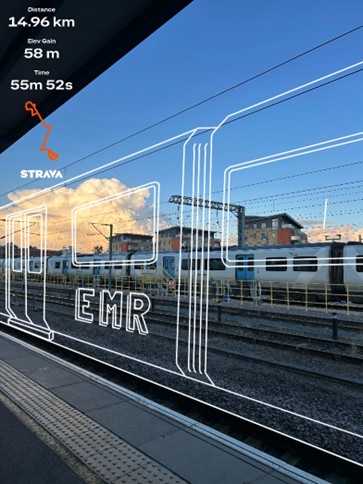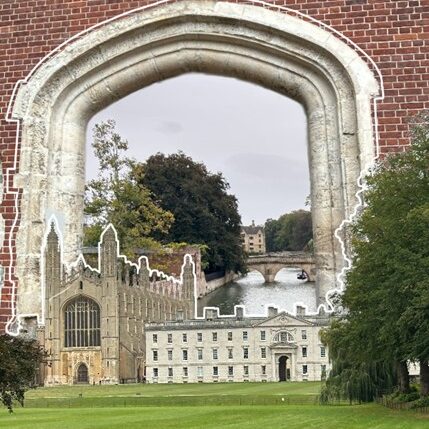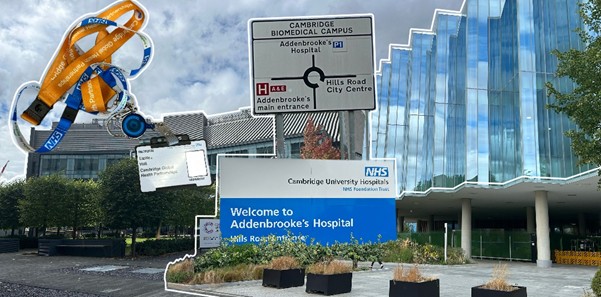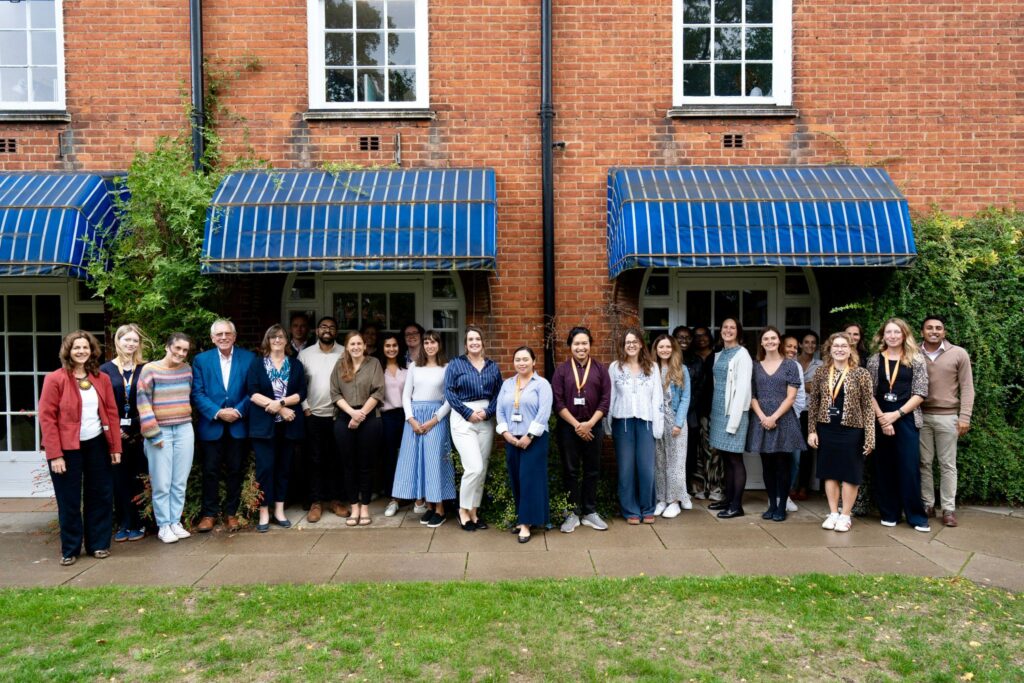Undergraduate student and Laidlaw Foundation scholar, Lizzie Hall spent six weeks completing her Leadership in Action project with CGHP, an important part of the Laidlaw Scholars Leadership & Research Programme. Here she reflects on her experience working in global health, the highlights of the internship, and the learnings she’ll take away.
“Global health affects us all. Although this seems like an obvious statement, the reality is that healthcare systems are often viewed as separate, confined to the cultural environment of each country. By widening our view of healthcare systems we realise that they are intertwined, creating a wider network of global health which, when supported, can transform lives. Developing this view of global health has been the key takeaway from my Leadership in Action (LiA) experience.
This summer, I have had the incredible opportunity to spend the past six weeks on the Cambridge Biomedical Campus interning with Cambridge Global Health Partnerships (CGHP), a charity linked to Addenbrooke’s Charitable Trust (ACT). CGHP delivers long-term, ethical health partnerships between the East of England and low- and middle-income countries. These partnerships aim to strengthen global health systems, not only by improving access and delivery of healthcare in the partner countries, but by providing a reciprocal learning environment to strengthen NHS healthcare workers’ skills through cultural immersion in partner countries’ healthcare environments.

My goal was to produce the ‘Impact Report’ for the Financial Year 24-25, to demonstrate the long-term sustainable impact of CGHP-facilitated partnerships and their alignment with the UK Government’s ‘10-Year Health Plan for England’, UN Sustainable Development Goals (SDGs), and CGHP’s values of ‘Safe, Ethical, and Effective’.

and some colleges (I promise my bike rides are
not usually this slow).

I began my days with an early morning commute, catching the train to Cambridge from my local station followed by a short bike or drive to the Biomedical Campus. Once arriving at the office, my day usually consisted of attending team meetings and working on the Impact Report.
Firstly, I took time reading the ‘10-year Health Plan for England’ and familiarising myself with the UN SDGs and CGHP’s strategy, which I later used to identify ‘a-priori themes’ (predetermined categories) for deductive thematic analysis. After deciding on my methodology, I designed and presented an ‘Impact Report Proposal’ consisting of the objectives, methods, and ideas for the structure of the report, which I then presented to my colleagues at CGHP and Costello Medical, CGHP’s pro-bono partner who supported me throughout my Leadership in Action (LiA) project.
In addition to the vast number of participant reports which I had access to, I also conducted one-on-one, semi-structured interviews with healthcare workers from both the NHS and partner countries. I transcribed the interviews and analysed both the transcripts and reports using thematic analysis with a hybrid inductive-deductive and latent approach. I also completed quantitative analysis on data from participant reports to provide descriptive statistics, which I then used to create infographics.
I found that my research experience from last summer was invaluable in providing knowledge and experience on how to collect, analyse, and present data, which I utilised throughout my LiA. I found the most daunting experience was conducting the interviews. During my Laidlaw Scholars research project, I had conducted interviews with UK university students so I had knowledge of the preparation and process of research interviews. However, I was initially nervous when asked to interview healthcare professionals. These nerves very quickly disappeared and I ended up having extremely meaningful conversations about the reciprocal impact of global health partnerships, including a hearing project in Malawi, strengthening antimicrobial stewardship in Kenya, and improving maternal healthcare in Uganda. One of the biggest challenges was the time differences and poor internet connections, but this comes with working globally and has improved my adaptability skills when working under pressure. Ultimately, this experience improved my ability and confidence to conduct research.
Another challenge was the sheer volume of participant reports I had the task of analysing, along with the interview transcripts. The amount of analysis I had to complete in the time frame of my LiA was at times overwhelming, far greater than what I had completed before, and took longer than I initially anticipated. Persevering through this analysis was my biggest achievement. Managing to complete it within the timeframe, with time remaining to write up and design the impact report has boosted my self-confidence in my ability to conduct research, whilst strengthening my time management and productivity skills.

A highlight of the project was designing the graphics and layout of the Impact Report. I rarely have the opportunity to be creative in my degree, so I tend jump at any opportunity to create illustrations in my work, such as in the academic posters that I have produced. So, I was very grateful to be given the freedom to graphically design the report, and for the design support provided by the pro-bono team at Costello Medical.
Another highlight was attending the learning event for CGHP’s East of England Global Health Fellows at the end of my LiA. At this event, previous CGHP fellows shared insights from the global health partnerships they’ve been involved in. Hearing directly from nurses, doctors, and Allied Health Professional about the impact of reciprocal learning during partnerships on strengthening global health systems, alongside the personal and professional growth developed during partnerships, was a fantastic ending to my 6-weeks and (thankfully) echoed the results of the Impact Report.
My time with CGHP has been an incredibly rewarding experience. I began my summer wishing to build upon my knowledge of global health beyond what I have learnt in my degree, whilst also strengthening my research skills. I have achieved this during my project, having greatly increased my knowledge of global healthcare systems whilst also enriching my research and medical communication skills, which I will utilise throughout the rest of my degree and, hopefully, during post-grad.”

Return to blogs
